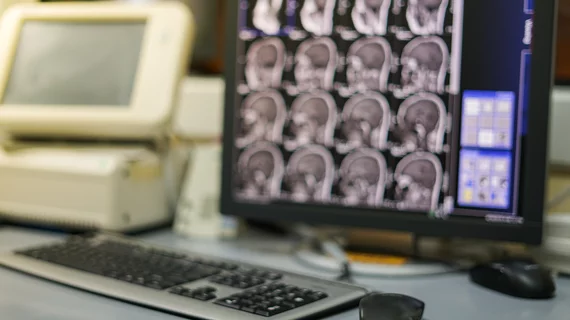CDS reduces inappropriate imaging orders, but is it enough with the CMS mandate looming?
A clinical decision support (CDS) tool designed to limit inappropriate high-cost imaging reduced targeted scans by 6%, reported authors of a study published in PLOS One.
The findings may be useful for creating a more efficient CDS tool given the upcoming CDS mandate in January 2020. CMS will require providers consult a decision tool for advanced imaging studies before receiving reimbursement.
“There is a lot of debate about the health risks and high costs that stem from the overuse of potentially inappropriate tests,” said co-author, Joseph Doyle, MIT Sloan School of Management, Cambridge, Massachusetts, in an email release. “Our research shows that technology can improve healthcare delivery by helping physicians make the right decisions about which diagnostic scans to use when.”
In the study, 3,511 healthcare providers at Aurora Health Care—the largest system in Wisconsin—were randomized, with half receiving the ACR Select CDS software tool to guide imaging decisions. ACR Select is one of nine tools CMS has deemed in compliance with the 2020 CDS mandate. The other half of providers continued to order imaging studies the same way they had before the trial.
Over the course of the one year study, Doyle et al. found CDS reduced targeted scans by 1.1 per affected provider, about a 6% decline in inappropriate high-cost imaging orders. Furthermore, CT scans—the most common high-cost imaging type—accounted for four-fifths of the overall reduction in targeted scans, and were reduced by 9% compared to the control group. The reduction in MRI ordering was not statistically significant, the researchers noted.
The researchers wrote the vast majority of targeted scans still remained, and that the CDS tool had a limited impact on the overall number of high-cost images ordered. This may be because the tool often recommends another high-cost imaging order, the authors noted.
“Our study was meant to understand whether software alone has potential to help doctors improve their decision-making around ordering these expensive and often risky tests because such an intervention is easily scaled,” Doyle said in the same release. “This is especially the case for diagnostic testing given the imminent mandate that CDS be used for high-cost imaging to be eligible for Medicare reimbursement. Further understanding of the most effective ways to employ the technology beyond simply showing the information about the guidelines remains an important area for future research.”

